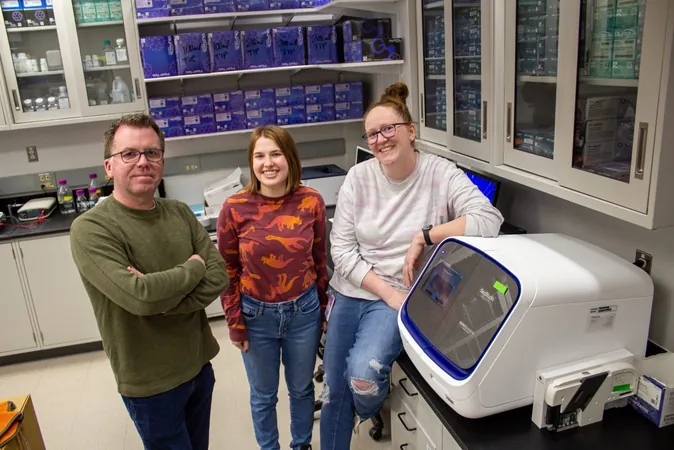
Groundbreaking Discovery: Bed Bug Resistance to Insecticides Linked to Gene Mutation!
2025-04-22
Author: Emma
A Resurgent Threat: The Bed Bug Comeback
After nearly being wiped out in the 1950s thanks to the infamous pesticide DDT, bed bugs are back with a vengeance, spreading rapidly across urban areas worldwide. But this time, they come equipped with a secret weapon: resistance to a variety of insecticides.
The Study That Unveiled the Mystery
A groundbreaking study from Virginia Tech, led by urban entomologist Warren Booth, shines a light on this growing problem. Published in the Journal of Medical Entomology, it reveals the discovery of a gene mutation in bed bugs that could be responsible for their newfound resilience against pest control methods.
Behind the Research
The investigation began as a practical learning experience for graduate student Camille Block, who was encouraged by Booth to explore the genetic basis of insecticide resistance. What started as a simple project turned into a major breakthrough when they found two samples from distinct bed bug populations that shared the same critical mutation.
Old Lessons, New Applications
Booth's prior research on German cockroaches had already identified mutations enabling insecticide resistance in those pests. With that knowledge in hand, Booth correctly hypothesized that bed bugs would similarly exhibit genetic resistance—and his suspicions were confirmed when they detected the same mutations in various specimens.
The Role of Familiar Insecticides
Interestingly, Booth noted that two previously effective pesticides, fipronil and dieldrin, operate through similar mechanisms. While dieldrin is long banned, fipronil is still widely used in flea treatments for pets. This raises a critical question: Are bed bugs becoming resistant due to exposure from treated pets sleeping in shared spaces?
A Need for Global Research
Next on Booth's agenda? Expanding this research to explore similar mutations in bed bug populations worldwide and across different timelines, particularly examining museum specimens. After all, bed bugs have existed for over a million years, and understanding their evolutionary journey could hold the key to eradicating them.
The Future of Bed Bug Research
In a significant achievement, Booth’s lab recently became the first to fully sequence the common bed bug genome. This monumental step provides researchers with the tools to trace genetic traits from historical specimens, giving insights into how pests have adapted over time.
An Enthusiastic Next Generation of Researchers
With her newly acquired molecular skills, Block is eager to delve deeper into studies of urban evolution, emphasizing the strong connection individuals feel with these urban pests. ‘I think it’s easier to get people interested in bed bugs because it’s something they’ve likely experienced firsthand,’ she remarks.
Conclusion: The Battle Continues!
As the fight against bed bugs evolves, so too must our strategies to combat them. With insights from genetic research, there’s hope for more effective pest control measures in the future. Stay tuned as scientists race to stay one step ahead of this adaptable urban menace!









 Brasil (PT)
Brasil (PT)
 Canada (EN)
Canada (EN)
 Chile (ES)
Chile (ES)
 Česko (CS)
Česko (CS)
 대한민국 (KO)
대한민국 (KO)
 España (ES)
España (ES)
 France (FR)
France (FR)
 Hong Kong (EN)
Hong Kong (EN)
 Italia (IT)
Italia (IT)
 日本 (JA)
日本 (JA)
 Magyarország (HU)
Magyarország (HU)
 Norge (NO)
Norge (NO)
 Polska (PL)
Polska (PL)
 Schweiz (DE)
Schweiz (DE)
 Singapore (EN)
Singapore (EN)
 Sverige (SV)
Sverige (SV)
 Suomi (FI)
Suomi (FI)
 Türkiye (TR)
Türkiye (TR)
 الإمارات العربية المتحدة (AR)
الإمارات العربية المتحدة (AR)